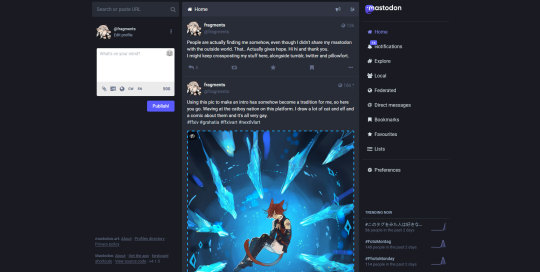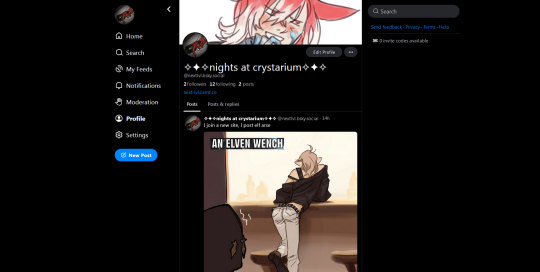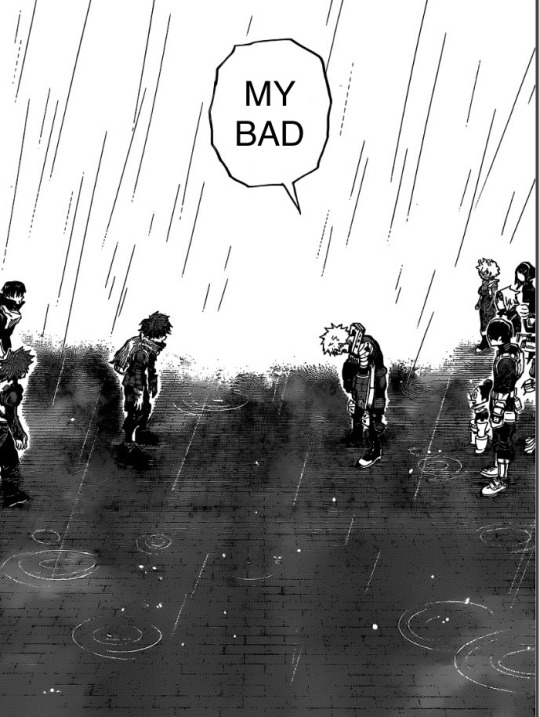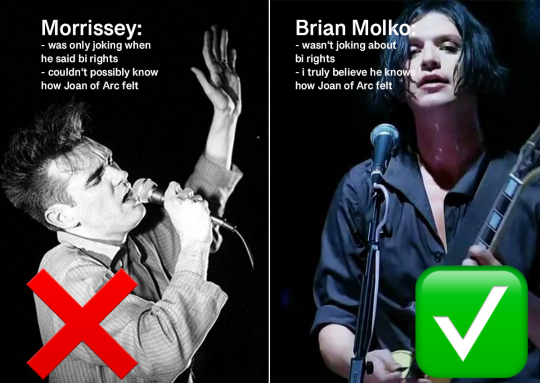#app covers
Text



worth it
#dc#jason todd#batfam#jim gordon#my art#*comes out of the photoshop app covered in blood*#IM ALIVE I PROMMY#its double funny cause its dean from spn and hes played by jensen ackles who voiced Jason in UTRH haha get it? get it? im very tired.
8K notes
·
View notes
Text

#AppIcons#App Icons#App Covers#App Icons Galaxy#Galaxy App Icons#Aesthetic App Icons#Etsyshop#Etsyseller#Etsysmallbusiness#iOS15#IOS 15 Tips#iOS 15 Home Screen
0 notes
Text
Once again saw someone yell on here about how "nobody is going to report this aaah the media is evil", closed this app and not even a minute later saw a report with that exact content on a major news platform. Ngl this phrasing is rapidly being added to the list of things i won't reblog on principle.
#Its always an argument as to why the post is more believable or more righteous#And its just a manipulation tactic whether deliberate or not#And I'm not doing that yall#Like either give me solid evidence its being hidden or discuss whatever issue you have in an actual factual manner#None of this reactionary bullshit#Like the amount of 'stories the news outlets aren't covering' where i found an article literally on the front page of the apo#Or with like a single basic search on their app if its a few days old#Like at this point you shouldn't be allowed to add this to your post unless you have googled the topic at least once#We can criticise HOW things are covered and when and by who etc but stop lying to make your point more dramatic
487 notes
·
View notes
Text

Beware the Ides
#or whatever i don’t know#jon snow#asoiaf#asoiaf fanart#asoiaf art#the version of this drawing that made it out of my drawing app congratulations#draws Jon covered in blood draws Jon covered in blood draws-
224 notes
·
View notes
Text
As a twitter/tumblr user since 2010-2011, I believe I have sufficient grounds to say that currently we as a community are living through the scariest, shittiest time yet. This post isn’t trying to fearmonger, no I’m not leaving tumblr until it literally keels over, but I suggest that we don’t put all our eggs in one basket.
If twitter/tumblr stay usable, great! In the worse scenario, you’d have kept posting on a new platform and stayed ahead of the curve.
This post shares my personal experience with three potential “new”* fandom places, and is aimed to help fellow content creators. I’m an artist fully depending on internet to survive, my reasoning may not apply to you if you’re a hobbyist. Do your own research, it’s always healthy.
* Pillowfort and mastodon have been around for 5+ years, bluesky is ~2 years old.
Discovering new people to follow kinda sucks on all three platforms, twitter and tumblr are eons ahead, but, given the recent chaos and uncertainty, I’m willing to be patient, keep posting on those, and feel safer than I would’ve otherwise been. More baskets good, one basket bad.
All three have poor visual customization, don’t expect custom tumblr themes.
This list starts with the least popular, but most human and easy to join, and what I personally trust the most. All three allow nsfw if labeled properly.
✦ Pillowfort is a barebones tumblr. Intuitive, cozy, but currently very, very small. Be patient with its clunkiness or lack of some features, it’s made by an AO3-like team. I’d personally love if the fandom crowd managed to redirect its attention to it instead of the sus bluesky.
Joining: is free, invite-only, but the waitlist is nearly instant.
Lurk around on their official tumblr: @/pillowfort-social
✦ Mastodon, for me personally, is impossible to explain directly. I’ll use several comparisons.
- Discord but all servers can interact. You’re still on a server curated by some human(s) that might tell you what you can and can’t post, BUT, if you don’t like that server’s policy, you can move to a new one while keeping your followers.
- Email, users A and B may be registered on different domains, still they can talk. It’s a weird comparison, but fediverse (please I’m not explaining THAT but it’s a good thing) in general looks like another email story: unlike big sites that come and go, it might stand the test of time.
- Someone compared mastodon’s structure to xiv’s dc and servers, if you look at its domain names that way, it might be easier to understand.
Depending on user, mastodon may feel gatekeepy/snowflakey. I haven’t spent enough time on there to form a proper opinion yet, but a warning’s due.
An actually good and hopeful thing about mastodon AND tumblr: the two might start interacting in future. Ever lamented that your fav asian artists don’t use tumblr? If they use misskey, or any other place on the fediverse, it might be possible to follow them directly from tumblr in future, and vice versa.
Joining: is free, however some servers close for new members sometimes, and have human moderators reviewing your request.
✦ Bluesky is a twitter without Musk: today’s average internet user reads this, drops everything and already looks to register there. It’s still sus, but people flock to it like crazy. Most likely to become the next big fandom place in my eyes, even if I’m not happy about that.
I personally have no good feelings about bluesky. Same as twitter, which I hated even before the 2018 tumblr exodus, yet the crowd decided to make it The New Fandom Place, and, grudgingly, I had to give up and also join them in 2022. During the year I haven’t stopped despising twitter, yet, I can’t deny that it helped me survive. I estimate half of my patrons, and, hell, even tumblr audience, comes from twitter. So, if bluesky ends up being the next hot shit, I’ll have to keep up because internet pays for my living.
Joining: is free but hell, invite-only, the waitlist is a lie, your best chance to join is a direct invite.
This’s all I’ve got to say for now. If you have a correction or an addition, replies/reblogs are welcome!
Screenshots of the current interfaces under the cut, you may spy on my profiles o/
Pillowfort

Mastodon.art

Bluesky

#i grabbed a name on cohost and inkblot too but those interfaces instantly turned me away#also i'm not covering the mobile apps since i'm a pc-only user#social media#pillowfort#mastodon#bluesky#text post#long post#this already started making rounds but i wanted to add about algorithms#all three seem to have no algorithm atm#only 100% about pillowfort tho
1K notes
·
View notes
Text

life is wasted
#psychonauts#caligosto loboto#medical abuse cw#<-yeah i think.That covers it#nightmaretheater#so sorry if you were innocently checking my blog after the crowment and were blasted with this#i was going to do a bit of artistic censoring but.Nahhh#time on canvas : 6 hours#i had to watch some videos of a transorbital lobotomy being preformed for refference 😁#god forbid i had my photos app open and someone looked over my shoulder and saw several screenshots#also Yes thats text from berenice. I cant be stopped#ohhh im so hungry.Chili for dinner……#wait. i forgot my watermark#thats okay. Theyll know its me from the berenice quote /nsrs#also yeah the orbitoclast looks a bit small. its the angle. Trust me. Okay.#I dont know how to paint flowers . I….Kind of my first time.Sooorry#Sorry guys . Had to post Horrifiying Upsetting Art again. Will continue to happen#its kind of funny this barely looks like fanart#good. Cant wait for someone to stumble upon this and freak out when they realize it is indeed fanart#surprised this was. 6 hours? Looks down at my hands… Woah…#reminder: I am drawing on my phone i did not go to art school💞#Okay time to collapse . Im really hungry#sorry . Just had to give my artists commentary
176 notes
·
View notes
Text

it hurts so much to keep my expression composed; give me some medicine, doctor
#25 ji nightcord de#niigo#prsk fa#mizuki akiyama#mafuyu asahina#slow downer#i like this song a lot ^_____^ thank you niigo for covering these depressing ass songs........i really need to work on grad apps but#i was listening to this on loop and drawing on sai is so fun#mizumafu#cw just in case#suicide#my art#yes i know ena sings this line but it's my favourite line
126 notes
·
View notes
Text
Really basic study tips. As in, you have no idea where to start, or you've been floundering for X period of time not making progress.
Total beginner?
Go to a search engine site. Whatever one you want Google.com, duckduckgo.com, or a searx.space site will work (I like search.hbubli.cc a lot). I think a non-google search engine will give you less ads and more specific results though so keep that in mind.
As a total beginner, search for some articles and advice to help you start planning HOW you are going to study a language. Search things like "how to learn X" where X is the language, "how i learned X," "guide to learn X." Ignore the product endorsement pages as best you can, you're looking for personal blogs and posts on learner forums like chinese-forums.com and forum.language-learners.org. After reading a few of these, come up with a list of general things you need to learn. This list will generally be: to read, to listen, to write, to speak. The articles/advice you find will likely mention Specific Study Activities people did to learn each of those skills - write them down! You might not do all those study activities yourself. But its good to know what possible study activities will help build each of the 4 skills.
Now get more specific. Think about your long term goals for this language. Be as SPECIFIC as possible. Things like "I want to pass the B2 exam in French" (and knowing what CEFR levels are), or "I want to watch History 3 Trapped in chinese with chinese subtitles" or "I want to read Mo Dao Zu Shi in chinese" or "I want to play Final Fantasy 16 in japanese" or "I want to make friends with spanish speakers and be able to talk about my hobbies in depth, and understand their comments on that subject and be able to ask what they mean if I get confused." Truly be as specific as possible. Ideally make more than one long term goal like this. And then specify EVEN MORE. So you want to "pass the B2 exam in French" - why? What real world application will you use those skills for. A possible answer: to work in a French office job in engineering. Great! Now you know very specifically what to look up for what you Need to actually study: you need to look up business appropriate writing examples, grammar for emails, engineering technical vocabulary, IN addition to everything required on the B2 exam. Your goal is to read mdzs in chinese? Lets get more specific: how many unique words are in mdzs (maybe you want to study ALL of them), how much do you wish to understand? 100% or is just understanding the main idea, or main idea and some details, good enough? Do you want to learn by Doing (reading and looking up things you don't know) or by studying ahead of time first (like studying vocabulary lists). Im getting into the weeds.
My point is: once you have a Very Specific Long Term Goal you can look up how to study to accomplish that very specific goal. If you want to get a B2 certificate there's courses and textbooks and classes and free materials that match 100% the material on the B2 test, so you can prioritize studying those materials. If your goal is to READ novels, you'll likely be looking for "how to read X" advice articles and then studying based on that advice (which is often "learn a few thousand frequent words, study a grammar resource, use graded reader material at your reading level, extensively and intensively read, look up unknown words either constantly or occasionally as desired when reading new material, and continue picking more difficult material with new unknown words"). Whatever your specific goal, you will go to a search engine and look up how people have accomplished THAT specific goal. Those study activities they did will be things you can do that you know worked for someone. If you get lucky, someone might suggest ALL the resources and study activities you need to accomplish your specific goal. Or they will know of a textbook/course/site that provides everything you need so you can just go do it. I'll use a reading goal example because its a specific goal i've had. I'd have the goal "read X book in chinese" so I'd look up "how to read chinese" "how to learn to read chinese novels" "how i read chinese webnovels" and similar search terms. I found suggestions like these on articles I found written by people who managed to learn to read chinese webnovels: Ben Whatley's strategy had been learn 2000 common words on memrise (he made a deck and shared it), read a characters guide (he linked the article he read), use graded readers (he linked Mandarin Companion), use Pleco app and read inside it (he linked Pleco) and in 6 months he was reading novels using Pleco for unknown words. I copied most of what he did, and did some of my own other study activities for theother 3 listening speaking writing skills. And in 6 months I was also reading webnovels in Pleco. Another article was by Readibu app creator, who read webnovels in chinese just looking up TONS of words till they learned (real brute force method). But it worked! They learned. So copying them by using Readibu app ans brute force reading MANY novels would work. Another good article is on HeavenlyPath.notion.site, they have articles on specifically what materials to study to learn to read - their article suggestions are similar to the process I went through in studying and Im confident if you follow their advice you'll be reading chinese in 1 year or less. (I saw one person who was reading webnovels within 3 months of following the Heavenly Path's guide plan). LOOK UP your specific long term goal, and write down specific activities people did to learn how to do that long term goal. Ideally: you will have some
SHORT TERM GOALS: you will not accomplish your long term language goal for 1 year or more. Probably not for many years. So make some short and medium term goals to guide you through studying and keep you on track. These can be any goals you want, that are stepping stones to the specific long term goals you set. So for the "read mdzs in chinese" long term goal, short and medium term goals might be the following: short term: learn 10 common words a week (through SRS like anki or a vocabulary list), study 100 common hanzi this month (using a book reference or SRS or a site), read 1 chapter of a grammar guide a week (a site or textbook or reference book), medium term: read a graded reader with 100 unique words once I have studied 300 words (like Mandarin Companion books or Pleco graded readers for sale), read a 500 unique word graded reader once I have studied 600 words, read 秃秃大王 and look up words I don't know once I have studied 1500 words (read in Pleco or Readibu or using any click-translator tool or translator/dictionary app), read another chinese novel with 1500 unique words, read a 30,000 word chinese 2 hours a day until I finish it, read another 30,000 word novel and see if I can finish it in less time, read a 60,000 word novel, read a 120,000 word novel, read a novel extensively without looking any words up and practice reading skills of relying on context clues (pick a novel with lower unique word count), read a novel a little above your reading level (a 2000 unique word count if say you only know 1700 words), go to a reading difficulty list and pick some novels easier than mdzs to read but harder than novels you've already read (Readibu ranks novels by HSK level, Heavenly Path ranks novel difficulty, if you search online you'll find other reading difficulty lists and sites). Those shorter term goals will give you things to work for this week, this month, this year. An example of study goals and activities might be: study all vocabulary, hanzi, grammar in 1 textbook chapter a week (lets say 20 new words/10-20 new hanzi,1-5 new grammar points - or alternatively you have 3 SRS anki decks for vocab, hanzi, grammar) along with read and look up unknown key words for 30 minutes a day (at first you may read graded readers then move onto novels). Those are short term goals you can ensure you meet weekly, and they also contribute to being able to read better gradually each month until you hit long term goals.
If you are very bad at making your own schedule and study plans: look for a good premade study material and just follow it. A good study material will: teach reading, writing, speaking, and listening skills, all the way to intermediate level. You may need to find multiple premade resources, such as 1 resource for writing/reading (many textbooks that teach 2000+ words and basic grammar will suffice) and 1 for speaking/listening (perhaps a good podcast, glossika, a tutor). Ideally formal classes will teach all 4 skills to intermediate level if you take 4 semesters of classes as an adult (beginner 1, beginner 2, intermediate 1, intermediate 2). Especially if the classes teach in accordance with trying to match you to expected defined language level skills (so formal classes that have syllabus goals that align with HSK, CEFR, or national standards of X level of fluency). So formal classes are an option. The same tips as above apply: make short term goals do do X a week, like study 30 minutes to 2 hours a day, to learn 10 new words a week, to get through X chapters a month, to practice speaking/reading/writing/reading oriented activities to some degree.
My short advice for picking a premade resource if totally lost: pick a starting material that covers 2000 words, basic grammar, and has dialogues if you don't know where to start. That will be enough to cover roughly beginner level language skills. I suggest you study by: studying the vocabulary and grammar of each chapter, listen to the dialogue with and without translation repeatedly until you understand it (listening skills), read the dialogue with and without translation (reading skills), write out example sentences using the new vocabulary and grammar (writing skills, the textbook exercises usually ask you to do this), speak your example sentences out loud (speaking practice), record yourself saying the dialogue and compare it to the dialogue audio - repeat this exercise until you sound similar in pronunciation to dialogue (speaking exercise - shadowing). Most decent textbooks will allow you to come up with similar activities to those listed above, to study some writing reading speaking listening. I like the Teach Yourself books as an example of the most basic version of what you need. Many languages have much better specific textbooks of that language. But if you're totally lost, get a Teach Yourself book and audio free from a library or for 10 dollars (or ANY equivalent book that teaches at least 2000 words and grammar) and go through it. If you buy a language specific textbook: keep working through the series until you've learned 2000 words and covered all basic grammar. For example Genk 1 and 2 cover 1700 words so you would want to work all the way through Genki 2 and ger near 2000 words before branching off to a textbook for intermediate students, or into native speaker materials. (Another example is I found a chinese textbook once that only taught 200 words... as a beginner you would not find that book as useful as one with more vocabulary)
Another adequate premade resource option: if you lile SRS tools like anki, look up premade decks that teach what you need to learn as a beginner. For Japanese you might look up "common words japanese anki deck" (Japanese core deck with 2k or more words is likely an option you'll see), "japanese grammar anki deck" (Tae Kin grammar deck is an option that covers common grammar), "JLPT kanji deck" or "kanji anki deck" or "kanji with mnemonics anki deck" (to study kanji). Ideally you study vocabulary, vocabulary, kanji, and ideally some of these anki decks will have audio and sentence examples for reading practice. Like with a textbook, you would attempt to do exercises which cover reading writing speaking listening. For reading and writing you may read sentences on anki cards, and write or type example sentences in a journal with new words you study and new grammar points. For listening you will play the sentence audio of a card with eyes closed until you hear the words clearly and recognize them, and for speaking you'll speak out the sentences and compare what you say to the audio on the card.
Keep in mind your specific long term goals! If your goal is speak to friend about hobby, you may follow a textbook and still need to ALSO make yourself practice talking weekly (on a language exchange app, with a tutor, with yourself, shadowing dialogues, looking up specific words you wish to discuss). If your goal is to read novels, you will likely need to seek out graded readers OUTSIDE your textbook and practice reading gradually harder material weekly. If your goal is listening to audio dramas, you will want an outside podcast resource likely starting with a Learner Podcast (chinese101, slow chinese, comprehensible chinese youtube channel) then move into graded reader audiobooks, then listen to audio dramas with transcripts, then just listen and look words up.
Once you hit lower intermediate: I'm defining that here as roughly you have studied 2000+ words, are familiar with basic grammar and comfortable looking up more specialized grammar information, and if you used a premade material then you have finished the beginner level material. If you desire to stay on a premade route then pick new resources made for intermediate learners. Do not dwell in the beginner material forever once you've studied it, continue to challenge yourself and learn new things regularly. (No matter what, continue to learn new things regularly, if you do that then every few hundred hours of study you WILL make significant progress toward your goals). Once you have hit intermediate it is also time to start adding activities that work toward your Very Specific Long Term goals now if you didn't already start. If you want to watch shows one day, this is when you start TRYING and get an idea of how much you understand versus how much you need to learn and WHAT you need to learn to do your goal well. If you want to read novels then start graded readers NOW if you havent already and progress to more difficult reading eventually into reading novels for native speakers. If you want to talk to people, start chatting regularly. If you want to take a B2 test, start studying language test specific study materials, practice doing the tasks you must be able to do to pass the test (so you can see what you need to learn and gauge progress over time), take practice tests. Intermediate level is when SOME stuff for native speakers will be at least understandable enough you can follow the main idea. Or at least, if you look up some key words you'll be able to grasp the main idea. Start engaging with stuff in the language now. For several reasons. 1. You need to practice Understanding all the basics you studied. Just because you studied it doesnt mean you can understand it immediately yet, you have to practice being in situations that require you to understand what you studied. 2. You also need to gauge where you are versus where you want to be, in order to set new short term goals. Once you do things in the language, you will see what specifically you need to study more. 3. By doing the activity you wish to do, you will get better at doing it. This is also a good time to mention that: if you wish to get better at speaking or writing now is the time to practice more. Just like listening and reading, you'll have to Do it more to improve.
The leap from using materials for beginners to materials for intermediate learners is harsh. It just is. The first 3 to 6 months you may feel drained, like you didn't learn much after all, annoyed its so much harder than the beginner material catered usually specifically to a learner's language level. Push through. I suggest goals like "listen to french 30 minutes a day" or "read 1 japanese news article a day" or "chat with someone for 1 hour total a week" or "watch 20 minutes of a show a day" or "write 1 page a day" and look up words you dont know but need to understand something or communicate to someone. Do X for X time period or X length of a chapter/episode type goals may be easiest to stick to during this period. Gradually, the time spent doing activities will add up and it will suddenly feel EASIER. Usually around the time you start understanding quicker and recalling quicker what you studied as a beginner. Then it keeps improving, as you gradually learn more and more. At first, picking the easiest content for your study activity will make the transition to intermediate stuff slightly less drastic. Easier content includes: conversations on daily life that only gradually add more specific topics (so you can lean on the beginner daily life function vocabulary), podcasts for learners entirely in target language and podcasts with transcripts, novels with low unique word counts (ideally 2000 unique words or less until your vocabulary gets bigger), shows you've watched before in a language you know (so you can guess more unknown words and follow the plot even when you don't understand the target language words), video game lets plays (ideally with captions) of video games you've played before, playing video games you already have played before and know the story for, reading summaries before starting new shows or books so you know what the general story is, reading books that have translations to a language you know (so you can read the translation then original or vice versa for additional context). Using any tools available (dictionary apps, translation apps like Pleco and Google Translate and click-translate web browser tools, Edge Read Aloud tool, reader apps like Kindle and Readibu, apps like Netflix dual subitles stuff).
Last mention: check in with your goals every so often. You might check in every 3 months, and say you notice you never manage to study daily (if that was your short term goal). That could be a sign it might be better to change your study schedule to study a couple hours on the days your life schedule is less busy, and skip study on busy days. Or it may be a sign the study activity you're trying to do daily is Very Hard for you to stick to, and maybe you should switch to a different study activity. (Example would be: I can't do SRS flashcards consistently, so when I got tired of SRS anki after a few months as a beginner, I switched to reading graded readers daily to learn new vocabulary then reading novels and looking up words. Another example: I love Listening Reading Method but could never do it as it was designed, so after a month of only doing 15 hours of it instead of the 100 hours the method intended at minimum in that time, I decided to modify that study activity into something I could get myself to do daily and enjoy more).
And, of course, its okay if what works for one person doesn't work for you. Everyone's different. As long as you are regularly studying some new things, and practicing understanding things you've studied before, you will make progress as the study hours add up. It may take hundreds of hours to see significant progress, but you Will see some progress every few hundreds of hours of study. I made the quick start suggestions for beginners above, because I have seen some people (including me) get lost at the start with no idea what a good resource looks like and no idea what to study, or how to determine goals and progress on those goals.
#rant#reference#resources#study plan#langblr#i could also make a side post lol on just HOW many language learning apps/tools are distractions for beginners#because they barely teach like 300 words! but readers spend YEARS on them!#u can cover 2000 words in 1 year. even high school classes cover that in 2 years. but many an app have u spending 4 years on 2000 words#then u get beginners mad they never Learned to do stuff in the language despite All Tgat Study#not realizing the apps problem was it simply ONLY covered beginner material. so it was only gonna be useful for 6 months to 2 years tops.
79 notes
·
View notes
Text
I didn’t address this while I was live blogging, but I’m gonna be so pissed when MC inevitably ends up taking all the heat for hiding Nia’s problem… because they’ve been going out of their way to force us to keep it under wraps, so I just know that’s gonna happen. And then Nia will be all “don’t be mad guys, I asked MC not to tell”. So everyone will let up on us, but no one will hold Nia accountable or apologize for ripping us a new one about a secret that wasn’t ours to tell in the first place 😒
#choices bolas#choices blades#blades of light and shadow#choices stories you play#playchoices#bc you know that’s PB’s m.o.#like we literally had someone say outright that Nia has shadow in her#but we have to go out of our way to continue to cover things up and lie to our friends faces#but Nia’s gonna make a sad face so no one will care#choices#choices app#pixelberry studios#pixelberry
144 notes
·
View notes
Text
so LOL my new job completely fucked me over and scammed me by telling me i'd work 20 hours a week immediately, then saying they won't have proper availability for a few more weeks, now saying they can barely give me hours at all, IF ANY, for the foreseeable future.
well my life goes on and continues to include expenses even as i try to apply for new jobs
in the meantime well my poetry books are still for sale!
you can get them for as little as 1 dollar or customize the amount to anything! PLEASE THEYRE NOT BAD- (INSERT REVIEWS HERE) the site is perfectly safe to buy from and v easy!
#whatever. uses the last 30 dollars on my credit card#i know later ill check this post and there will be 0 notes#which is fine#i just dont know what else to do?#i applied to my local library yesterday and tried soooo hard on my app and cover letter#so im begging pleading ill get it#but i know its kind of compteitive so :(#then theres just fucking nowhere left thats hiring except like fast food#which is a bummer cause i said id never work in fast food again after i did in high school#but like hello? hello girl? girl help?#all my cards are maxed because ive had no money to pay them off#needless to say nothing in my fucking account#im in debt to all my friends#i got a few jobs art modeling this month#but its only like 150$ total#which like. i need 800+ a month . so#epic my dude#.txt
57 notes
·
View notes
Text


red suits him
#to the dozen Ballistic enjoyers on this app: you are save now my sweet children#the first one is my first drawing of him#his hair is sooo fluffy and his moustache covers his lips a bit cuz i was super used to drawing Fuse at the time hehe#ughh i wanna caress is soft with age face and smooch him Y__Y#my soppin wet beast my purr purr meow meow#ballistic#apex legends#ballistic apex legends#august brinkman#my art#my fanart
236 notes
·
View notes
Text
bnha season six predictions


^^ picture of deku looking at bakugou
#bnha manga spoilers#me being salty#the effort I put into editing these photos#true dedication#three separate apps lmao#I’m not a professional#bkdk#izuku midoriya#ochako uraraka#togachako#but covered up by a pic of deku looking at kacchan#bakudeku#bnha#bnha season 6
590 notes
·
View notes
Text

#this is one of my favorite official covers for jason#if that tells you all you need to know about me...#I have loads and loads of analysis on him they area all crammed on notes app#Jason todd#arkham knight#my heart of hearts
80 notes
·
View notes
Text

made this today and decided this should be avalible to the world
we all know which version of bigmouth strikes again is superior
#it’s the placebo cover#brian molko#morrissey is a dick#and that’s a known fact#placebo#the smiths#post punk#post punk meme#morrisey#music meme#by moi#yes i made this in photoshop i’m definitely spending sensible money for apps
655 notes
·
View notes
Text



The half star princes
Instagram | Twitter
#Evoro#Victor#I think this is the longest I spent on costumes#and then the hair!! >:(#illustration#illustration art#illustration artists#procreate illustration#procreate art#procreate app#digital art#digital illustration#oc#oc art#original character art#cover art#cover illustration#character illustration#character artists#character design#costume design#costume art
364 notes
·
View notes
Text
Feeling incredibly disappointed at the fall of quality in Choices books on this fine night, gang.
#can’t believe this is the same app that produced gems like Endless Summer#ugh#I haven’t been back on since the new wave of AI produced cover/Storyloom uncanny sprites books started releasing#so so sad#playchoices
31 notes
·
View notes